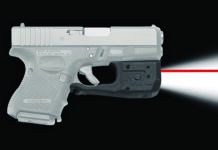Adam Winkler, Professor at UCLA School of Law, posted a sobering summary of the effect of Heller on recent lower-court rulings:
In June, 2008, the U.S. Supreme Court issued a landmark ruling on the Second Amendment right to bear arms, D.C. v. Heller. For over 70 years, the federal courts had read that amendment to protect only a state’s right to organize militias, like the National Guard. In a long-awaited victory for the gun rights movement, the Court reversed course and held that the Second Amendment protected an individual’s right to own guns for personal self-defense.
So far, the victory hasn’t turned out exactly as the gun rights folks had hoped.
As many legal scholars predicted, the Supreme Court’s decision led to a tidal wave of Second Amendment challenges to gun control. Every person charged with a gun crime saw the Supreme Court’s decision as a Get Out of Jail Free Card.
To date, the lower federal courts have ruled in over 60 different cases on the constitutionality of a wide variety of gun control laws. There have been suits against laws banning possession of firearms by felons, drug addicts, illegal aliens, and individuals convicted of domestic violence misdemeanors. The courts have ruled on the constitutionality of laws prohibiting particular types of weapons, including sawed-off shotguns and machine guns, and specific weapons attachments. Defendants have challenged laws barring guns in school zones and post offices, and laws outlawing “straw” purchases, the carrying of concealed weapons, possession of an unregistered firearm, and particular types of ammunition. The courts have upheld every one of these laws.
Since Heller, its Gun Control: 60, Individual Right: 0.
To read the rest of the article, click here.


























